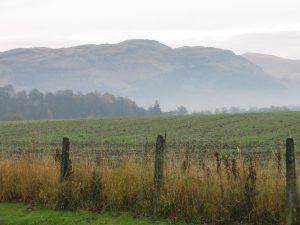
Having a place means that you know what a place means… what it means in a storied sense of myth, character and presence but also in an ecological sense… Integrating native consciousness with mythic consciousness.
Gary Snyder
I picked this quotation up on Twitter this week and I’ve been trying to track down exactly where it appears. Not as easy as you would think, because although it is one of his most cited quotations, very few of those citations include the text. Looking it up is like going round and round on Tumblr, where everybody is just reposting everything with no discernible point of origin. It looks as if it belongs in The Practice of the Wild, but that is as far as I’ve got so far!
Irish poet Moya Cannon, whom I heard reading last night, talked about a poet’s ‘unmet mentors’ and Gary Snyder is definitely one of mine. If you’ve been reading this blog since I started, you’ll know about my Walking the Territory practice, and you’ll know that this is the road out of the village where in live, and the haggard I wrote about in the last book is a little further up the road, to the left. My ‘place’ has informed a lot of my poetry in the past, and it’s going to inform a little bit of the next book too, because having ‘one’s own place’, no matter how temporarily is an important part of what it means to understand yourself as ‘a person’. I wrote a bit about this here.
But it’s also important to have a ‘family’ – a sense of connections with ‘your own’ group of people, who may or may not be blood-relatives, who may or may not be professional colleagues, friends, neighbours, co-religionists, countrymen or fellow-hobbyists, and I’ve realised that this, too, demands that you know ‘what a family means’ – both ecologically – who are they, how are you connected, how does your family relate to each other and to the outside world, and in the ‘storied sense of myth, presence and character’. Part of being in a family is knowing not just your genealogy, like a hobbit, but also understanding your history, and the culture you carry forward. How crucial this is was brought home to me this morning, when I opened Moya Cannon’s book, and read this poem One of the Most Foolish Questions.
Who we are is where we are, but also who we love, who we remember, whose songs we carry, whose myths we tell. I once had the frightening (but very short-lived) experience of losing all that, and for maybe twenty seconds I might as well have been a dead woman walking. It was too short-lived to be able to describe, but I do remember how it felt to come back from it, and feel my whole self washing into me like a tide into a dry harbour. Our individuality is a curious and wonderful thing, but it is only experienced in our connectedness.
Leave a Reply